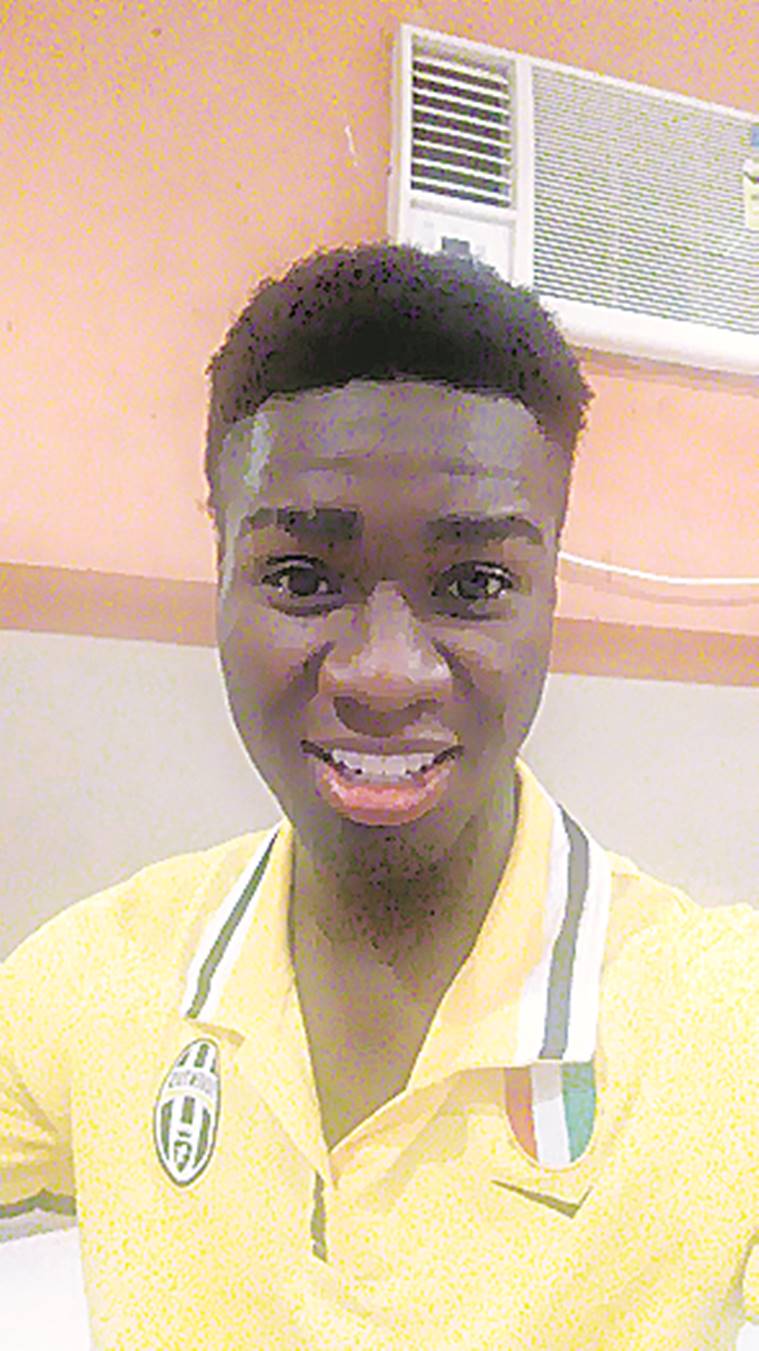 Muller with teammates in Thrissur (first row, right)
Muller with teammates in Thrissur (first row, right)
In mid-march, as Randy Juan Muller, a Ghanian footballer playing Kerala’s popular seven-a-side circuit, prepared to leave Thrissur for Mumbai by train to take the flight home, he appeared tense. “Maybe, it was the fear of travelling during the pandemic. We consoled him, saying he would reach home soon. He said goodbye with the promise of meeting next year and becoming famous,” recalls Faizal, the goalkeeper of Muller’s club ORPC Kechery.
It’s been over two months and Faizal hasn’t reached home, but he is already under the spotlight.
On reaching the Mumbai airport, Muller came to know about the ban on international flights, and found himself stranded outside with little more than Rs 1,000, his only saving from six months of a Covid-curtailed season.
With help from Mumbai Police, CISF and the airport authority, the 24-year-old made a park outside the terminal his home for 73 days — until two days ago, when Maharashtra Minister Aaditya Thackeray, and later the Ghana Embassy, intervened and he was moved to a suburban hotel. “They have promised to put me on the first flight home. Home is closer now,” he says.
Muller remembers his first day with little cash and no place to go. “I was woken up by a policeman. He asked me to leave the airport. But I couldn’t return to Kerala because the trains were cancelled, I couldn’t go to a hotel because I didn’t have money. I was like ‘well, I’m gonna die here’,” he says.
 Randy Juan Muller plays in Kerala’s popular seven-a-side circuit.
Randy Juan Muller plays in Kerala’s popular seven-a-side circuit.Muller took a walk around the airport and settled into a “neat and breezy corner”, somewhere the police could not spot him easily. But little did he know then that it would become his home for more than two-and-a-half months. “Now I feel it’s one of the most beautiful places I have slept at. The breeze, the stars, and the friendly people,” he says.
The only time he had to leave was when Cyclone Nisarga struck last week, and the CISF took him to one of their cabins.
By then, he had already struck up conversations with policemen and CISF personnel. “We used to watch Hindi movies on the phone. I used to tell them stories of Ghana and my hometown, which is a few hours from Accra. We ended up spending hours talking politics, sport and religion. They even got me a cellphone when mine got damaged,” says Muller.
Being disconnected from his family for about 20 days without a phone was “traumatic”. “When I finally called them, they were like, ‘we thought you were dead’. The joy I felt in their voices re-energised me. I told myself I would live to see them again, even if I have to starve,” he says.
“But there was always someone to give me food — roti, biscuits, a soft drink,” he says. A more difficult part was to wash his clothes. “I had to wear the same clothes for weeks. Then I would put them out in the sun and spray some perfume so that they don’t stink,” he says.
Eventually, loneliness hit. “Same routine, faces, surroundings… It nearly drove me mad,” he says.
His teammates in Thrissur insist it was Muller’s “friendly nature” that got him through. “He would keep talking about his country, football, dreams, love. He was like a younger brother to all of us,” says Faizal.
The football season wasn’t productive for Muller, though. A sharp-shooting centre forward, but a first-timer to Sevens, he had to bide his time to get a consistent run. And when he did, the lockdown happened.
In Sevens, rookies usually get an initial fee in the range of Rs 30,000 to Rs 50,000, followed by match fees. “In big tournaments, you get Rs 1,500 for a game. In other tournaments, you get anything from Rs 500 to Rs 800… But it’s better money than what you get back home, where the level of competition is so high that it’s difficult to break into the top league,” he says.
And that’s why Muller headed to the seven-a-side belt of Malappuram, Kozhikode, Thrissur and Palakkad, like several from his country and other African nations such as Ivory Coast, Nigeria and Senegal.
Now, despite the ordeal, he says he will take a slice of Mumbai and Kerala back home. “I don’t have the money to buy a souvenir or gift, but I think this experience itself is the biggest souvenir. God willing, I will return to Kerala.”